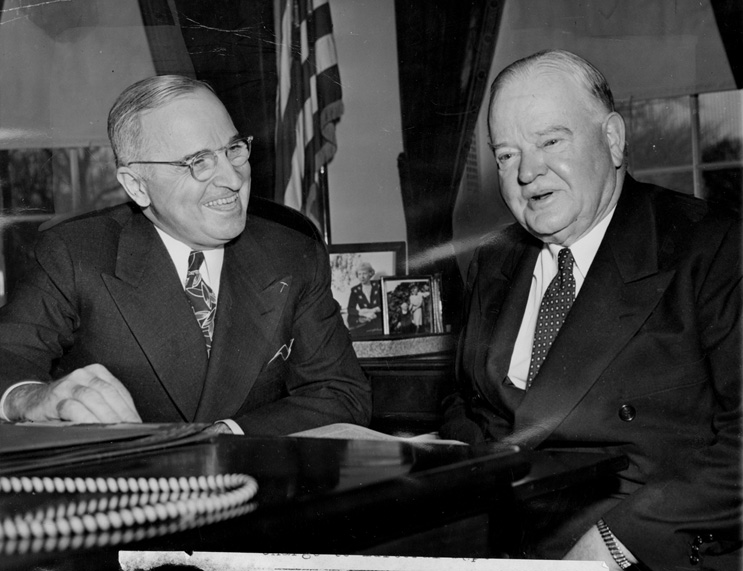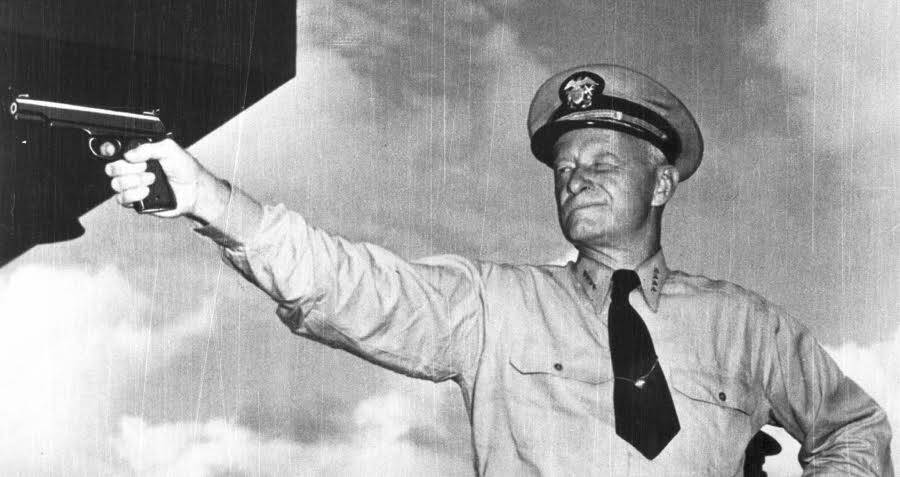An “Interim committee," chaired by Stimson and heavily influenced by Byrnes, was established to come to a final decision about how to use the bomb. Oppenheimer warned that within 3 years, bombs would be up to 7,000 times more powerful than Fat Man, between 10 and 100 megatons.
Manhattan project scientists began to staunchly, publicly oppose the use of the bomb, stating it would cite an “uncontrollable arms race between the US and USSR that will lead to total mutual annihilation.”
7 of the 8 5-star generals at the time pressured Truman against using the bomb. Admiral William F. Leahy, chief of staff, described the bomb as “A violation of every Christian ethic, and all the laws of war.”
Also from Leahy:" “The use of this barbarous weapon at Hiroshima and Nagasaki was of no material use in the war against Japan. I was not taught to make war in that fashion. Wars cannot be won by destroying women and children."
Supreme Commander Eisenhower was against using the bomb on two grounds: “The Japanese were ready to surrender and it wasn’t necessary to hit them with that awful thing. Second, I hated to see our country be the first to use such a weapon.”
Supreme Commander MacArthur, who frequently advocated for nuking Korea, described the use of the atomic bombs on Japan as an “outrage.” He was confident that, as early as May 1945, the Japanese would gladly accept the revised surrender terms Hoover had urged Truman about.
Former president Hoover wrote a memo in May 1945 urging Truman to find another way to end the war by altering surrender terms. MacArthur called it “a wise and statesman-like document, which if enacted would have obviated the slaughter at Hiroshima and Nagasaki."
Dozens of high-ranking admirals openly stated that the Japanese were ready to surrender. Chester Nimitz, 2nd-in-command of the Navy stated in October 1945 that “The Japanese had already sued for peace before the atomic age was announced, before Hiroshima and before the Russians"
Brigadier Gen. Carter Clarke said “We brought them down to an abject surrender, through accelerated sinking of their merchant marines and hunger alone. We didn’t need to do it, we knew we didn’t need to do it, and they knew we didn’t need to do it. We used them as an experiment."
The War Department later issued a memo claiming there was little discussion of the US bomb in the Japanese cabinet. To Japanese leaders, there was little difference between the firebombings and nuclear bombings. They accepted that the US could continue to wipe out their cities.
Some of the most respected US generals in history overwhelmingly came out against the bomb, and the nuclear threats failed to carry any weight in the imperial war council. The decisive factor in Japan's surrender was always the Soviets.
So what changed? On April 11th and July 6th, internal JSC memos state that “Soviet entry into the war will convince all Japanese that further resistance is futile.” Truman was aware of all of this.
Truman wrote in his diary: “Stalin will enter the war by August 15th. Japs finished when that occurs.” He later wrote to his wife: “The Russians are coming in, we’ll end the war a year sooner now. Think of all the boys that won’t be killed.”

 Read on Twitter
Read on Twitter






